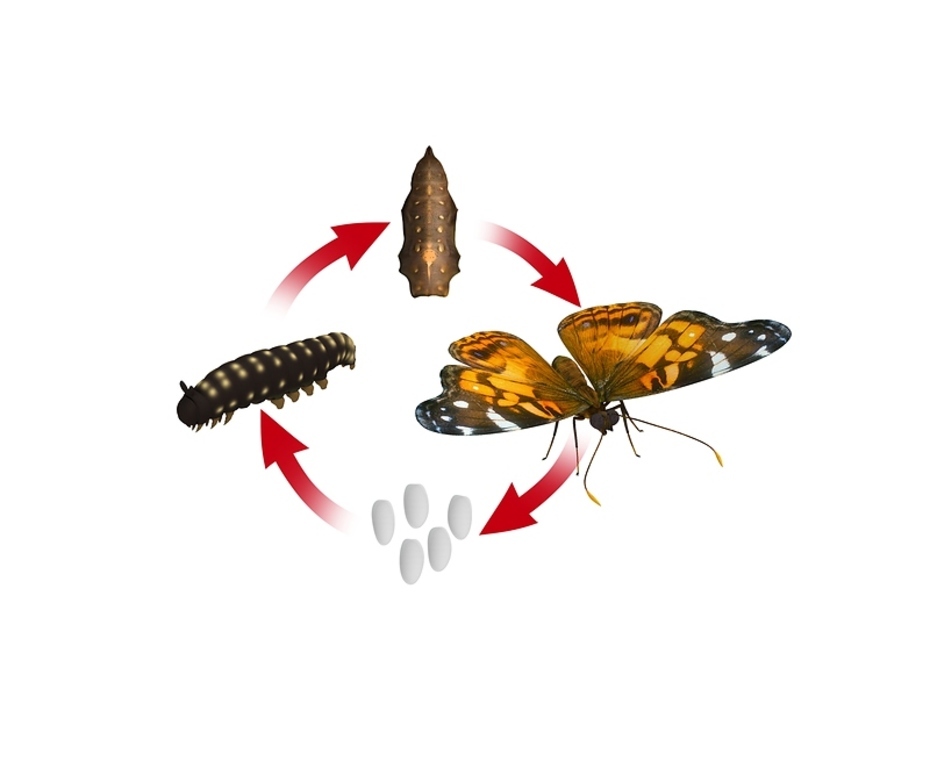Psyche
The butterfly the ancient Grecians made
The soul's fair emblem, and its only name--
But of the soul, escaped the slavish trade
Of mortal life !--For in this earthly frame
Ours is the reptile's lot, much toil, much blame,
Manifold motions making little speed,
And to deform and kill the things whereon we feed.

Samuel Taylor Coleridge’s poem Psyche (composed 1808) flutters around the Greek idea that the soul is like a butterfly which can be considered to be distinct from “the slavish trade of mortal life”.
The comparative drudgery of mortal life might, fairly reasonably, therefore be thought of as the caterpillar and contrasted with the “soul’s fair emblem” – the butterfly.
In contemplating the UK WITHDRAWAL FROM THE EUROPEAN UNION (LEGAL CONTINUITY) (SCOTLAND) BILL A Reference by the Attorney General and the Advocate General for Scotland today, Lord Reed in the UK Supreme Court has interjected into Lord Wolffe’s (Scotland’s Lord Advocate) oral submissions. Lord Wolffe is arguing that the UK Government’s challenge as to the legislative competence of the Scottish Parliament’s Continuity Bill (which seeks to channel EU laws currently relevant to Scotland to Holyrood rather than Westminster) should be dismissed. Lord Reed’s interjection was to stress the point that the notion of legislative competence is only applicable to an Act of the Scottish Parliament - not a Bill.
It may be a fundamental (perhaps insurmountable) conceptual difficulty, for that aspect of the UK Government's argument, that the Continuity Bill is, at present, only in its pupal stage.
That particular aspect of the case certainly doesn't nestle readily into the hands of the Court.
It is not, at this pupal stage, possible readily to assess the proper nature of the statutory creature that is yet to emerge on Royal Assent.
An additional difficulty is that the Reference encompasses questions regarding distinct provisions of the Continuity Bill – and the competence of the Continuity Bill as a whole.
If a competent Act, or provision, of the Scottish Parliament can be compared - on the one hand - to a butterfly. An Act, or provision(s) within the Holyrood Act, that might not be competent might – on the other hand – be compared to a moth.
Here the UK Supreme Court are asked to exercise foresight and determine whether the caterpillar will be a butterfly or a moth while the creature is still at the pupal stage.

That seems to require a problematic leap forward to the point that the Continuity Bill reaches the statute book.
The problem is that this could mean a return to the Court at a future date.
In an aside, both Lord Reed and Lord Sumption drew attention to the fact that the UK’s secession from the European Union is not, as yet, a done deal and is not, necessarily, a certainty. Given the Court’s proper constitutional position and the clear practice that judges do not, ordinarily, involve themselves in political questions, only the most ill-considered Press reports would portray such points as judicial politicking. The justices are simply contemplating the possibility that the primary scenario is not a certainty.
Possibly the more interesting avenue of discussion, with affirmative views from, amongst others, Lord Sumption, concerned scope for Holyrood to alter/expand its legislation on human rights. Human rights law in a devolved context might be a tangential, unanticipated, but extremely important, aspect of this case.
It does seem clear, however, that the case is symptomatic of the pressure of politics upon the law as a result of the Brexit process.